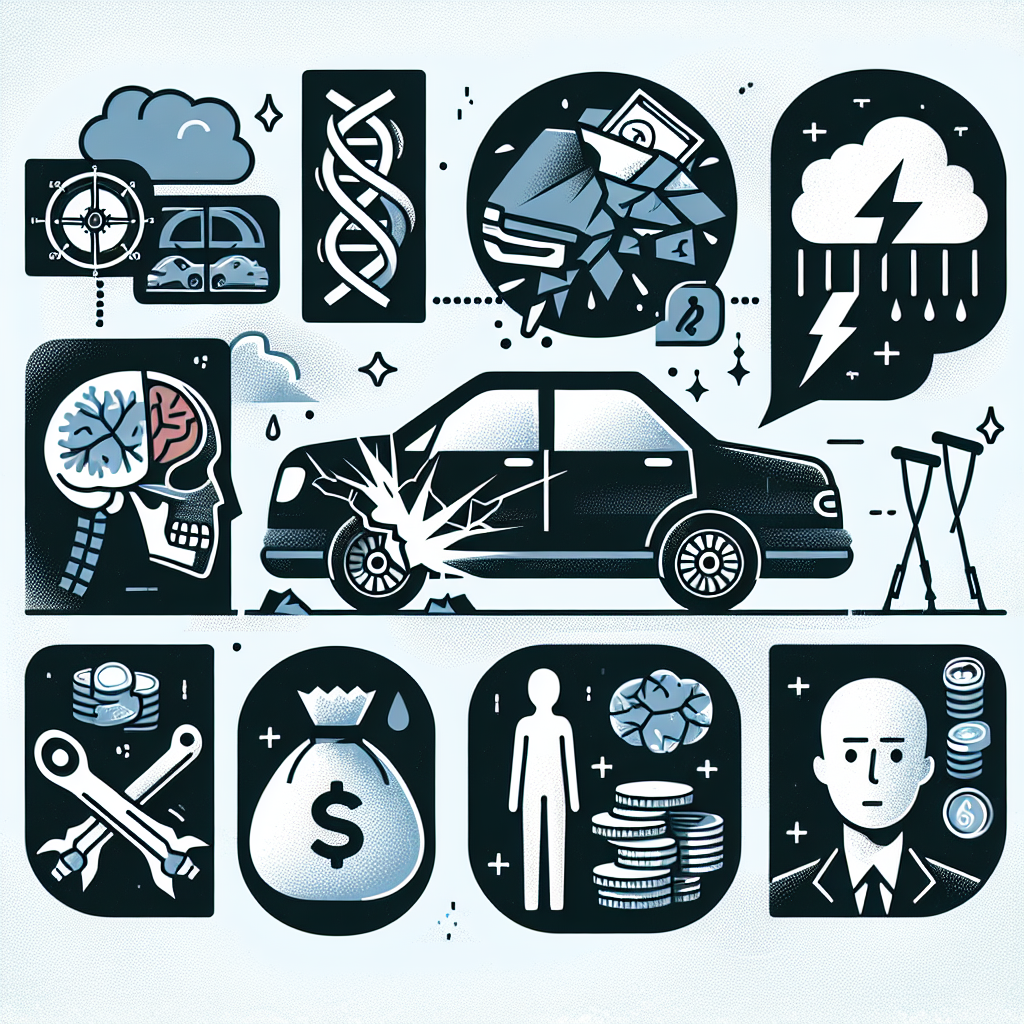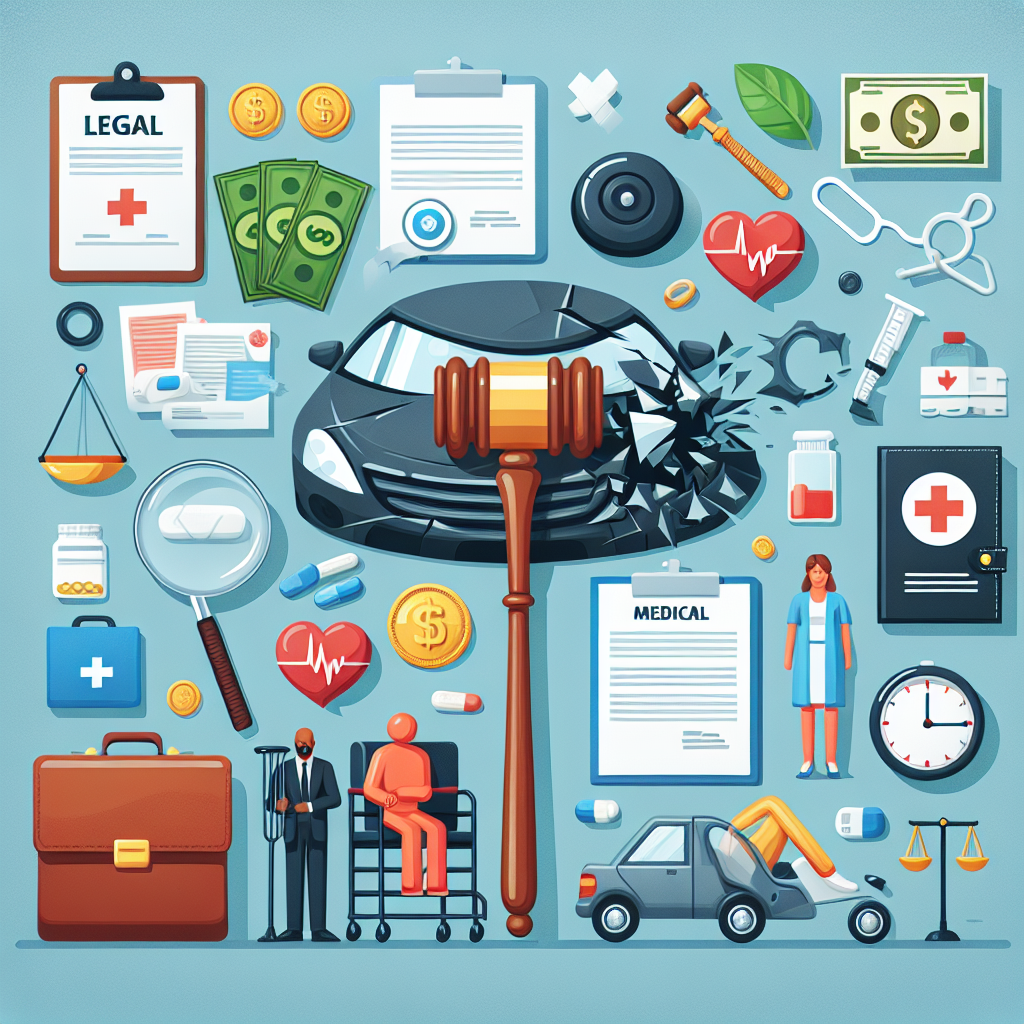-
Table of Contents
What Types of Damages Can You Recover After a Car Accident

Car accidents can be traumatic experiences that result in physical injuries, emotional distress, and financial burdens. If you have been involved in a car accident that was caused by someone else’s negligence, you may be entitled to compensation for the damages you have suffered. Understanding the types of damages you can recover after a car accident is crucial for ensuring that you receive the appropriate compensation. In this article, we will explore the various types of damages that can be recovered and provide valuable insights into the process.
1. Economic Damages
Economic damages refer to the financial losses that you have incurred as a result of the car accident. These damages are quantifiable and can be easily calculated based on actual expenses and documentation. Examples of economic damages include:
- Medical expenses: This includes the cost of hospitalization, surgeries, medications, rehabilitation, and any other medical treatments required as a result of the accident.
- Property damage: If your vehicle or any other property was damaged in the accident, you can claim the cost of repairs or replacement.
- Lost wages: If the accident caused you to miss work, you can claim the income you would have earned during that time period.
- Loss of earning capacity: In some cases, car accidents can result in long-term or permanent disabilities that affect your ability to work and earn a living. You may be entitled to compensation for the loss of future earning capacity.
It is important to keep all relevant receipts, bills, and documentation to support your claim for economic damages. Providing evidence of your financial losses will strengthen your case and increase your chances of receiving fair compensation.
2. Non-Economic Damages
Non-economic damages are more subjective and difficult to quantify compared to economic damages. These damages are meant to compensate you for the intangible losses you have suffered as a result of the car accident. Examples of non-economic damages include:
- Pain and suffering: This includes physical pain, emotional distress, and mental anguish caused by the accident and its aftermath.
- Loss of enjoyment of life: If the accident has resulted in a diminished ability to participate in activities or enjoy life as you did before, you may be entitled to compensation for the loss of enjoyment.
- Loss of consortium: If the accident has affected your relationship with your spouse or partner, resulting in a loss of companionship or intimacy, you may be able to claim damages for loss of consortium.
Calculating non-economic damages can be challenging as there are no fixed monetary values for these losses. Insurance companies and courts often use various methods to determine the appropriate compensation for non-economic damages, such as the multiplier method or per diem method. Consulting with an experienced personal injury attorney can help you understand how non-economic damages are typically calculated in your jurisdiction.
3. Punitive Damages
In some cases, the at-fault party’s conduct may be deemed particularly reckless or intentional, warranting punitive damages. Punitive damages are meant to punish the wrongdoer and deter others from engaging in similar behavior. These damages are awarded in addition to economic and non-economic damages and are relatively rare. To be awarded punitive damages, you must prove that the at-fault party acted with malice, fraud, or gross negligence.
It is important to note that not all jurisdictions allow for punitive damages, and the availability and limits of punitive damages vary by state. Consulting with a personal injury attorney who is familiar with the laws in your jurisdiction can help you determine whether punitive damages may be applicable in your case.
4. Case Studies and Statistics
Examining case studies and statistics can provide valuable insights into the types of damages that can be recovered after a car accident. Here are a few examples:
- In a case study involving a severe car accident resulting in permanent disability, the injured party was awarded $2 million in economic damages for medical expenses, lost wages, and future medical care. Additionally, they were awarded $1 million in non-economic damages for pain and suffering.
- According to the National Highway Traffic Safety Administration (NHTSA), the average economic cost of car accidents in the United States is estimated to be around $242 billion annually. This includes medical expenses, property damage, lost productivity, and other related costs.
These examples highlight the significant financial impact that car accidents can have on individuals and society as a whole. Seeking appropriate compensation for the damages you have suffered is essential for mitigating the financial burden and ensuring a fair recovery.
5. Conclusion
Car accidents can result in various types of damages, including economic, non-economic, and in rare cases, punitive damages. Understanding the different types of damages that can be recovered is crucial for pursuing a successful personal injury claim. By documenting your financial losses, seeking appropriate medical treatment, and consulting with an experienced personal injury attorney, you can increase your chances of receiving fair compensation for the damages you have suffered. Remember, every case is unique, and the specific damages you can recover will depend on the circumstances of your accident and the laws in your jurisdiction. If you get in a wreck and need legal representation, feel free to call us at (702) 999-8888.



